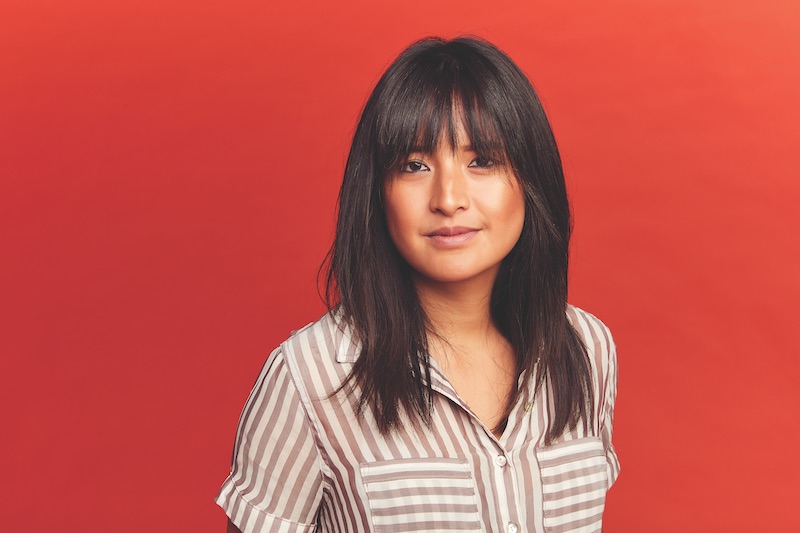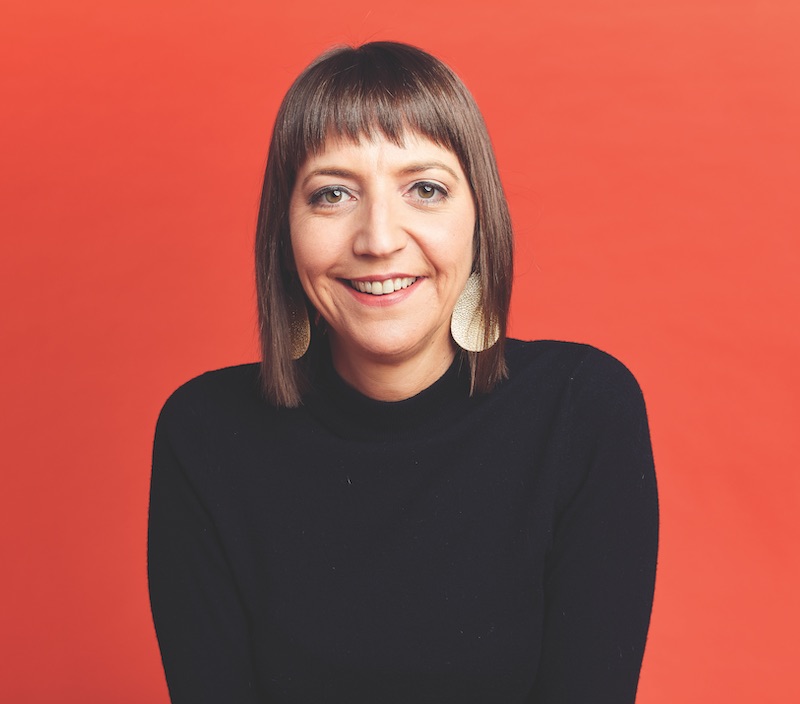
Photograph by Ben Rollins
PHI NGUYEN
35-year-old litigation director for Asian Americans Advancing Justice-Atlanta
The first philanthropic project that I was involved in was through Athena’s Warehouse, the nonprofit that my sister Bee Nguyen (State House Representative, district 89, and the first Vietnamese-American woman elected to Georgia’s General Assembly) started in 2009. Athena’s served high school girls at under-resourced public high schools: largely women of color, immigrants, or children of immigrants. We saw the ways in which our laws make it difficult to be undocumented. Even if one of the girls we worked with excelled academically, her options for higher education were significantly restricted and often economically infeasible.
Bee has always followed her passions and her heart in a way that wasn’t always to the liking of our parents, who wanted us to pursue more traditional career paths. We grew up in a household where politics weren’t spoken about; I was actually the one who registered my mom to vote for the first time in 2016. Seeing Bee created space for me to do the same—pursue projects and jobs that create social impact.
That led to spearheading Vietnamese Voices in 2016, in collaboration with Asian Americans Advancing Justice-Atlanta (AAAJ-Atlanta). We registered around 600 Vietnamese-American voters four months ahead of the presidential election. Eventually, I joined AAAJ-Atlanta full-time in 2017 to do civil rights litigation, then coproduced a web series, Wake Up Atlanta, to engage Asian-American millennial voters. The more community work I was doing, particularly with immigrants, the more I understood how policies shaped the ways people were able to live their lives. Or not able to live their lives, as the case may be.

Photograph by Ben Rollins
QAADIRAH ABDUR-RAHIM
41-year-old CEO of Future Foundation, giving underserved youth the skills to thrive
My brother and I, born and raised in Atlanta, both went to the University of California, Berkeley on athletic scholarships. When we got there, we were completely unprepared to compete academically because we hadn’t gone to the best schools. We both made it, and my brother, Shareef, decided that, if given the opportunity, he would create a place that could help underserved children. He went to the NBA, played for the Atlanta Hawks, and when he came home, he reminded me of our dream to help kids. I’d just finished my first master’s, so I moved back to help build the nonprofit in 2003. We started with about 15 children. I took over as CEO in 2005 and from then to 2010, we grew to serve 5,000 kids and their families, and we kept growing. We’re focused on helping kids access five key activity categories: academics, healthy relationships, health information, life skills, and family engagement. Philanthropy wasn’t a category for me growing up, but someone who has changed my life through her mentorship is Ann Cramer, who served as IBM’s corporate citizenship director. The fact that someone so established has been an amazing champion has encouraged me along the way. Ann is courageous and has inspired me to continue this work, which can be tough.

Photograph by Ben Rollins
KATE ATWOOD
40-year-old founder of Kate’s Club, which empowers children after the death of a loved one
Next-gen philanthropy isn’t about amassing a lot of wealth and giving it away. It’s really about valuing your life and impacting others. When I started Kate’s Club in 2003, I had no money and I didn’t know anybody in Atlanta, so I just started cold-calling CEOs. Doug Hertz (United Distributors CEO) was the first to take my call and invite me to his office to give my pitch for the nonprofit. Doug and his wife, Lila, are some of the most well-known philanthropists in Atlanta. He listened to my pitch, pulled out his personal checkbook, and wrote me a check for $100. It was an emotional transaction because that $100 gave me confidence that I could succeed. Later, as executive director for the Arby’s Foundation, I had the resources to contribute to other organizations. We made the first corporate donation to the Center for Civic Innovation. Now they’re bringing up the next generation of social entrepreneurs. Whenever someone gives you the gift of believing in you, you’re going to look for how you can pay it forward. Doug’s check was an ignition point, breaking the seal for me to confidently approach other donors and believe I could accomplish the big dream of creating Kate’s Club.

Photograph by Ben Rollins
BLAKE CANTERBURY
35-year-old founder of Purposity, the app that allows users to fund local needs in real time
In 2016, while working at a creative agency, I got an email from a homeless liaison at a local school who told me it could take weeks or months to get basic resources for kids in poverty. Some developer friends and I moonlighted to create a basic piece of technology to solve the problem. It worked and made us realize the solution to solving similar issues was in the billions of people on the planet with phones in their hands. We wanted to create the easiest way to help other people, believing individuals would want to meet needs in their communities, if only they knew and had a way to contribute. That’s what Purposity—the intersection of purpose and generosity—allows you to do: Users download our app, see a real-time list of nearby needs, and donate. We collect the money, purchase the items, communicate with the vetted partner agencies, and the items are delivered within two days. One hundred percent of the funds go to meeting needs, thanks to donations and corporate sponsors. We have a pretty incredible board, including former Home Depot CEO Frank Blake, who has been a mentor. The fact that someone like him believed in us, investing time and money, means everything. Purposity is growing fast, and we’ll surpass 100 cities by year’s end.

Photograph by Ben Rollins
ROHIT MALHOTRA
33-year-old founder & executive director of the Center for Civic Innovation (CCI), aimed at eliminating inequality
I grew up outside of Atlanta and worked in communications for then-President Obama, but wanted to make an impact locally. I started CCI in 2014, because Atlanta was, at the time, the most unequal city in the United States. We want to change the way people think about investing in social impact work in our city and create an economic case for it. I work with incredible people who are investing in interesting community-based solutions, focusing on improving public participation. So many have come alongside CCI and me. There’s Asif Ramji, formerly of Paymetric, who was the first person to write a check, and Tené Traylor, who has been an advocate for neighborhoods in Atlanta for years and is constantly thinking about how we can better invest our dollars and time into strengthening community voices. Cherie Ong let us use almost 15,000 square feet of space in the old Rich’s department store for our groups. Clark Dean, who runs Transwestern, has opened every door he could for us in the business community. And Sara Blakely of Spanx has been a champion for our fellowship program. We want to see the system shift, taking these ideas to the next level, so when you think about investing in Atlanta, you don’t just think about tech companies, you think about social companies because they’re just as valuable to our local economy. Ultimately, we’re in the business of putting problems out of business.










![The North Carolina Museum of Natural Sciences’ newest exhibit is a [pre]historic first](https://cdn2.atlantamagazine.com/wp-content/uploads/sites/4/2024/04/DD-3-100x70.jpg)



